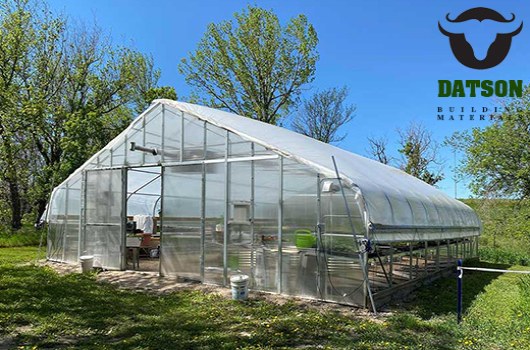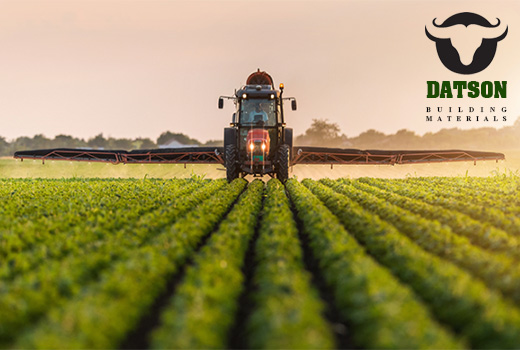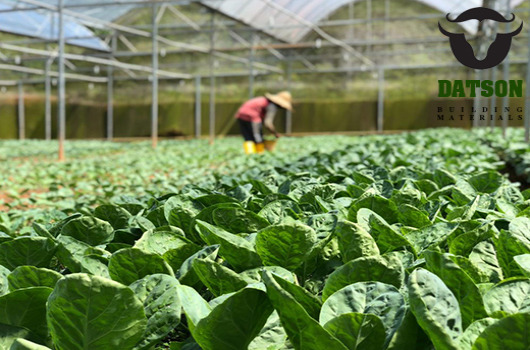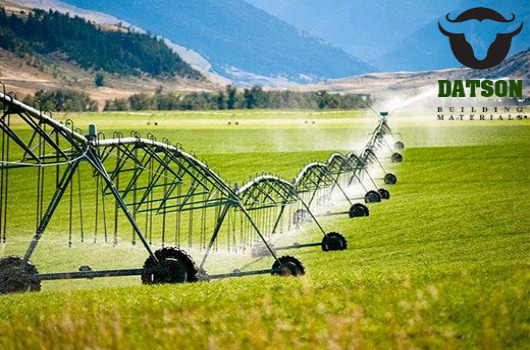As modern farming continues to evolve, sustainability is becoming more and more essential. With growing concerns about chemical residues, damage to the environment, and declining soil health, both farmers and researchers are on the lookout for effective, eco-friendly alternatives to synthetic products.
One such solution gaining traction is the use of talc for agriculture, a natural mineral that is proving to be a powerful ally in sustainable crop management. More than just an inert substance, talc powder in the agricultural industry is now recognized for its role as a natural pesticide, a carrier agent in fertilizers, and a key ingredient in improving soil and plant health.
Talc’s Role in Sustainable Agriculture
Talc, a soft mineral made of magnesium silicate, is widely recognized for its use in industries and cosmetics. But recently, it’s gaining more attention in farming circles and for good reason. Thanks to its versatility, low cost, and minimal impact on the environment, Talc in fertilizer & agriculture is no longer just a niche idea. It’s becoming an essential tool for farmers who want to reduce their reliance on chemicals and improve crop health in a more natural way.

Natural Pesticide Properties
One of the standout benefits of talc for agriculture is its role as a natural pesticide. Its unique physical properties create a protective barrier that helps keep pests away especially in grain storage and plant care. Talc can absorb moisture and form a thin coating on grain, leaves, or stems, which makes it harder for insects like weevils and aphids to settle and multiply.
These pests often rely on moisture and soft surfaces to breed or feed, and talc disrupts this environment without the need for toxic chemicals.
When applied to crops, talcum powder for agriculture adheres to plant surfaces, forming a dry, dusty layer that repels many soft-bodied insects. This non-toxic, physical method of pest control is especially valuable in organic farming, where chemical pesticides are restricted. Additionally, talc does not leave harmful residues, making it safe for consumers and reducing the risk of pesticide resistance among pest populations.
Carrier for Bio-Pesticides and Fertilizers
Beyond its direct pesticidal properties, talc serves as an effective carrier for bio-pesticides and bio-fertilizers. This is perhaps one of the most revolutionary uses of talc powder for bio-fertilizers. Due to its fine particle size, high surface area, and inert nature, talc is ideal for carrying beneficial microbes, nutrients, or botanical extracts that form the basis of biological pest and disease control strategies.
Bio-pesticides formulated with talcum powder for agriculture have a longer shelf life and better field application characteristics. Talc acts as a protective medium, stabilizing these sensitive agents and facilitating even distribution when applied to the soil or crops. In bio-fertilizers, talc’s moisture-absorbing qualities help maintain the viability of microbial cultures, allowing them to thrive once introduced into the soil.
Soil Health and Crop Yield Enhancement
Healthy soil is at the heart of successful farming, and taking care of it is key to long-term sustainability. That’s where talc in fertilizer & agriculture comes in. When mixed into compost or fertilizers, talc helps improve the soil’s texture and air flow. This makes it easier for plant roots to grow deeper and absorb nutrients more effectively, leading to stronger, healthier crops. This leads to stronger plants and higher yields over time.
Talc’s role in reducing soil compaction and improving water retention makes it particularly useful in arid or degraded lands. Moreover, by enhancing the delivery of nutrients and beneficial microbes to plant roots, talc powder for bio-fertilizers supports long-term soil fertility without the environmental downsides of chemical additives.
Advantages Over Synthetic Pesticides
With growing concerns about the environmental and health risks of synthetic pesticides, more farmers and experts are turning to natural alternatives. Talcum powder for agriculture stands out as a smart, eco-friendly option that can either replace or work alongside traditional pest control methods.
One major advantage is that talc is non-toxic. It doesn’t harm helpful organisms like bees, earthworms, or aquatic life many of which are easily affected by chemical pesticides. This makes talc a perfect fit for integrated pest management (IPM) approaches, which aim to protect ecological balance while minimizing chemical use.
Another benefit is its affordability and easy availability. Talcum powder for agriculture is accessible even for small-scale farmers. Unlike many synthetic products, it doesn’t require special licenses, handling, or storage, making it simple and safe to use.
Also, because talc works through physical action rather than chemical toxicity, pests don’t build up resistance over time. This means its effectiveness lasts longer, which is a big plus for sustainable pest control.
Future Perspectives
As farming continues to face challenges like climate change, soil depletion, and rising food demand, natural tools like talc are set to become even more important. Researchers are actively working on new ways to boost talc’s pest-fighting and soil-friendly properties, such as nano-formulas and special blends with other natural ingredients. The future of farming may be rooted in solutions as simple and powerful as Talcum powder for agriculture.
There is also a growing market for organic and sustainably grown food, which demands inputs that are safe, natural, and effective. In this new era of sustainable farming, talcum powder for agriculture is emerging as a practical and adaptable solution. To help it reach its full potential across different types of farming systems, policy support, better farmer education, and stronger supply chains will all play a key role.
Bringing together the expertise of agronomists, soil scientists, and environmental specialists is also crucial. Their collaboration can help ensure talc for agriculture is used in the most effective and environmentally responsible ways. In the near future, we may even see talc paired with precision farming technologies, helping farmers apply it more accurately and reduce waste.
Conclusion
While talc is often known for its role in cosmetics and industry, it’s quietly becoming a game-changer in sustainable agriculture. Whether it’s working as a natural pesticide, improving soil quality, or acting as a carrier for bio-fertilizers, talc for agriculture offers a wide range of benefits for today’s farmers. Its non-toxic makeup, affordability, and compatibility with organic farming practices make it a smart, sustainable alternative to synthetic chemicals.
One company leading this change is Datson, which has been actively supporting the use of talcum powder for agriculture with innovative, farmer-friendly solutions.
The rising use of talcum powder for agriculture reflects a bigger shift in the farming world toward more eco-conscious, effective, and sustainable ways of growing food.
As the agricultural sector embraces sustainability, this humble mineral may well become a cornerstone of future food security. Whether you’re a large-scale farmer or a smallholder seeking natural alternatives, talc powder for bio-fertilizers and pest control offers a pathway to healthier crops, better soil, and a safer planet. Embracing talc powder in the agricultural industry is not just a trend it’s a practical step towards the long-term viability of agriculture.



